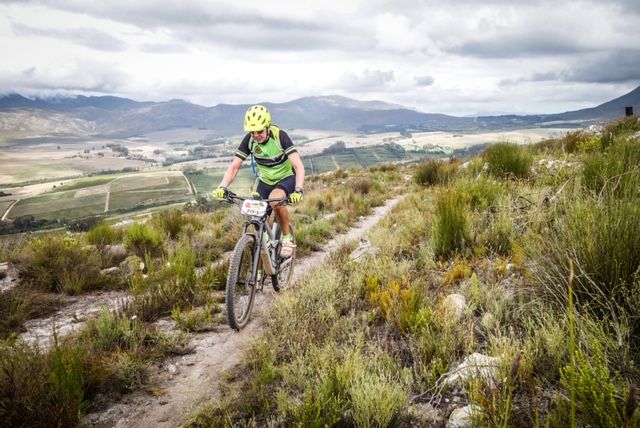
Furiously Successful Consultancies Put All Their Eggs in One Basket.
.jpg?width=56&name=francescorizzato8%20(1280px).jpg)
This article was last updated on 20 January 2023.
“Your narrow positioning is an exercise in irrelevance. The more irrelevant you become to non-ideal prospects by turning your positioning away from them, the more relevant you become to your chosen target clients. But that requires courage and discipline”. — David C. Baker
I am experiencing it every day in my talks to consultancies: most of them struggle with the concept of narrowing their focus to deepen their expertise, their authority, their visibility in the market, their plain growth.
It’s too tempting to focus on creating wide expertise instead of deep expertise. They try to cater to numerous types of clients, instead of being a seen as true experts in one area. Keeping the options open. As a result, most consultancies aren’t seeing the results they want.
Conventional wisdom says “don’t put all your eggs in one basket.”
Why? Because it’s risky. It’s scary. You must remember, traditional wisdom is inherently risk-avoidant.
However, the traditional wisdom doesn't work if a consultancy wants to achieve insanely levels of success— the kind of success most firms will likely never experience. To achieve that, consultancies need to put all their eggs in one basket.
Focus! Extremely, infinitely, strikingly!
It’s the only way consulting firms can get the truly enormous results that will make them top of mind with their prospects. If a firm's domain expertise is too wide, it’ll invariably attract many clients who aren’t a great fit. The more a consultancy narrows its focus, the closer it gets to better-fit (and higher-paying) clients.
Recommended reading: The 5 Main Challenges Almost Every Consultancy Struggles With
How to make success in consulting a sure bet
“Always bet on the man who bets everything on himself.” -old proverb
It's all in the mindset of consulting leaders and, as a result, the culture they create in their consultancies – that of resilience and persistence. These mindset strengths are a must on the road to mastery.
Did you know that 99% of people who start a marathon, finish it? It’s all in the mind.
The most challenging mountain bike race in the world. And my mindset.
In my 2007-2008 sabbatical year, when I had quit my corporate job, I decided to enroll in the ‘The Untamed’ Cape Epic 8-day stage mountain bike race in South Africa.
It’s the ‘Paris-Dakar’ of the mountain bike sport, with the world elite professionals competing in the front row and about 1,000 hobby bikers behind them (always in teams of 2). It’s broadcasted live on TV in more than 30 countries. It had been my dream for many years.
I teamed up with the numero uno of our mountain bike club, the fastest guy with the best technical riding skills, and a great mechanic too, in case. I felt safe with him on my side.
I had one goal: finish the 8-day race, whatever happened.
I trained almost for a full year with the guidance of a professional cycling coach. Every day, both core body training and cycling of course.
And I trained everything else: sleeping (next to my bed) on a mat (to prepare sleeping in a small tent), sleeping with earplugs (there’s a lot of noise in a tent camp with 1,000 riders, cuffing all night due to the red African sand in their lungs), sitting in a sauna as long as possible (2x per week to get used to the heat), eating/drinking special food/drinks on the bike (to survive 8 hour race days), etc.
My team buddy was laughing at me all the time. What the heck was I doing? Why all these stupid preparations like sleeping on a mat on the floor? It was about cycling and he was the best in town. He didn’t even train the cycling properly, he was the Number 1 guy anyway.
The closer we got to the race, the more I got concerned about his attitude. That race was known for being merciless.
Guess what happened. During the 3rd day, he was taken out of the race by the race ambulance. Fully dehydrated, deadly exhausted (he couldn’t sleep on the mat), completely powerless and mentally drained. His overconfidence turned him into a broken, wrecked guy who turned into an aggressive and angry teammate.
I was allowed to continue the race. I arrived just 7’ ahead of the time limit that 3rd day, due to all the troubles with my teammate.
I finished the race after 8 days.
And I could have continued several more harsh competition days, I felt top fit. I didn’t crash (250 crashes during the race), I didn’t have any technical issues, I didn’t get sick, I slept well, I never got tired despite the fierce circumstances (temperature up to almost 40 degrees). And most of all, I enjoyed it every single minute!
I’ve always been ‘100% in control’ in the race. Ever since then, I am a firm believer in the power of mindset and attitude, which was 50% of my race achievement, you bet.

(Image: Competing in 'The Untamed', the Cape Epic race in South Africa)
Consultancies can change their business bet to be a sure-thing if everyone – from consulting leaders to junior consultants to marketers – set their mind to focus on one single thing and go all the way, as I did in South Africa.
Iterate, adjust, iterate, and adjust again, 100 times.
The world’s most successful consultancies adopt high-risk, high-reward strategies, repeatedly
There is a common theme among the most successful consulting leaders: these people always seem to have the guts and the courage to play high-risk, high-reward.
The truth is, only a fraction of consultancies and members of the leadership teams I’ve been talking to the past 12 months make a sustainable, carefree living from their work. It sometimes turns me sad because there’s so much opportunity out there!
Thriving consultancies got successful in their narrow, higher-risk fields because they put all their eggs in one basket.
Recommended reading: Replicate the Secret of This Highly Profitable Consultancy
An expert is somebody who benefits from repeated observation and repeated application. So to build deep expertise, you need to study the same sorts of problems over and over again. So you start to see patterns. (Blair Enns)
To build on Blair Enns’ quote: if a consultancy is pitching for a project and it doesn't own deep (and narrow) expertise in the specific domain that’s required, this firm is in the race to the bottom: endless competition of ‘same-as-you’ firms, no negotiation power, buyer expectations to be a well-behaving, obedient follower kinda firm on a low day rate, trivial and risk-free to replace.
The majority of consultancies aren’t making as much money or working with the type of clients/projects they really want.
In most cases, they played the safe, low-risk game for too long. It’s a losing battle in our hyper-connected Google world. Nobody will come across their profile. Google search will put them on page 59, irrelevant as they are, unfortunately. And nobody is coming to rescue them. They don’t get rewarded for trying, failing, or working hard.
Recommended reading: Positioning in Consulting Is an Exercise in Irrelevance and Here’s Why
Consultancies that cater to a wide audience have no future!
When I audit consultancies that offer a long list of services – an attempt to capture as wide of an audience as possible – and without even doing a deep-dive into their performance, I almost always spot that they have:
- poor market visibility
- low traffic to the website (if at all) or profile page
- no systematic lead generation (no T-L-C approach, Traffic to Leads to Clients)
- inefficient social media use
- no/low trust-building expertise-driven educational content and probably needing to say yes to everything to make money (the Jack of all trades).
Why? Because firms with such extensive positioning will always struggle to explain why a prospect should hire them.
If a consultant can’t immediately introduce their firm's specific problem-resolution expertise with all the ins and outs, this consultancy will always lose against their (only 1 click away) competitor who owns the narrow space and has a clear problem solution.
As a consultant, you need to fully grasp all the details, the background, the context, the relationships, the characteristics, the frequency, the volume, the typical stakeholders involved, etc., of the CRITICAL PAINS OF YOUR TARGET AUDIENCE (in your narrow domain expertise). If you'd cover multiple expertise areas (keeping the options open out of fear to lose income), that’s totally impossible to accomplish.
Consultancies that grow their expertise wide instead of deep will get body-shopped: selling hours for money. And not for particularly high fees either!
Generalist consultancies usually suffer from the 90/80 challenge!
- Did you know that 90% of professional service buyers check out a consultancy's profile online before making a decision to get in touch?
- And did you know that a striking 80% of potential firms put themselves out of the picture straight away because of their poor online profile and/or lack of visible expertise?
(data from Hinge Research Institute).
And this is what decision-makers say about consultancies that lead through authoritative thought leadership content, especially in anticipation of hard economic times: (Source: 2022 LinkedIn-Edelman B2B Thought Leadership Impact Report)
- 44% of decision-makers say: they will be personally less receptive to sales calls and marketing outreach if a downturn hits.
- 61% say: an organization's thought leadership can be moderately or a lot more effective at demonstrating the potential value of its services compared to traditional marketing.
- 50% say: high quality thought leadership has more impact on their purchase decision-making during economic downturns than when times are good.
- 55% say: as budgets are cut, services deemed nice-to-have rather than must-haves will be where necessary spending reductions come from.
Recommended reading: (Case Study) Replicate the Secret of This Highly Profitable Consultancy
Wouldn’t it be great if a consultancy could…
- Get a reliable, steady flow of new clients?
- Get special expert invitations to RFP’s (instead of begging/applying)?
- Have its consultants speak and teach around the world, achieve incredible market visibility, and become go-to experts in their industry?
- Enjoy the magnetic retention of existing clients?
- Succeed with zero or very low marketing costs?
- Prequalify its new clients organically through its content?
- Dare to ask better/higher rates (without getting into persuasion, discussion, or negotiation)?
- Do ‘upstream work’ most of the time (strategic guidance, teaching, and diagnostic-like advice)?
- Have the ability to protect 10-15% of the team's time to re-invest in deepening their expertise, improving their visibility, and actively contributing to business development and revenue growth?
This happened to me in the past years!
Why? I took the risk to put all my eggs in one single basket. To be honest, I’ve always been a rebel by nature. Doing what everyone else is doing always triggered me to do something totally different.
Consultancies have to make the unsafe choice to achieve the results that 99% of other consultancies will never achieve
Darren Hardy, the best-selling author and entrepreneur, once said: “Successful people do what unsuccessful people are unwilling to do.” Looking at people who've built highly successful businesses, this statement certainly rings true.
Making the unsafe choice
Believe it or not but making the unsafe choice has never been easier for consultancies. There are so many ways to succeed — technology, opportunity, and worldwide access have never been more abundant for firms, in many ways leveling the field for small and large firms.
But it still takes courage and guts. Especially in an uncertain economic climate.
When I quit my well-paying CHRO role in 2007 to start a new consulting business from scratch, the world was in the middle of the financial crisis. Everybody was trying to convince me to reverse my decision and to choose the certainty of a corporate executive role.
My inner-circle called me naive and ignorant of what was going on in the world.
By trying to stop me, my over-skeptic inner-circle gave me, Luk-the-rebel, infinite superpowers. I haven’t been afraid of unsafe choices or failure a second because I had a conscious plan and executed it with the highest possible discipline and the deepest possible focus.
9 years later, my consultancy got acquired by Big-4 consultancy firm Deloitte and the awesome team tripled the revenue in no time. 3 years later, I left Deloitte to pass all the learnings of this amazing consulting era in my life to other consulting leaders and their teams.
And to celebrate my radical professional move, I enrolled for my second 8-day Cape Epic mountain bike race in South Africa, at the age of 60 (in 2019). And I successfully accomplished ‘The Untamed’ again. With ease, seriously! And I could have continued several more merciless competition days. Like in 2008.
Talking about unsafe choices...
In conclusion
Consultancies that want to work exclusively on high-level projects with premium rates and much more meaningful and secure upstream work (strategic/diagnostic) need to make a few unsafe choices, be the rebels.
If you want to live an exceptional and extraordinary life, you have to give up many of the things that are part of a normal one. (Srinivas Rao)
Putting all eggs in one basket is not common advice. But common advice produces common results. Looking at consultancies on the market, there are plenty of "common" firms – usually with challenging and often frustrating project pipeline development.
I always remind myself of a quote from Seth Godin in a keynote I watched on YouTube: ‘We get stuck when we are more afraid of the change than we are of staying still’. Wow!
In a world full of opportunity, consulting firms need to overcome their deep-rooted need to respond to every incoming request. They need to be ruthless in discerning what is important and what is just noise.
Success is 20 steps in one direction, not one step in 20 directions. (Anonymous)
Interested in receiving all my learnings to become a better consultant? No spam, no BS. Pure teaching! Subscribe to my newsletter.
.jpg?width=66&name=francescorizzato8%20(1280px).jpg)
Luk’s extensive career in the consulting business, which spans more than 20 years, has seen him undertake a variety of influential positions. He served as the European CHRO for Nielsen Consulting (5,000 consultants in the EU), founded iNostix in 2008—a mid-sized analytics consultancy—and led the charge in tripling revenue post-acquisition of iNostix by Deloitte (in 2016) as a leader within the Deloitte analytics practice. His expertise in consultancy performance improvement is underlined by his former role on Nielsen's acquisition evaluation committee. After fulfilling a three-year earn-out period at Deloitte, Luk harnessed his vast experience in consultancy performance improvement and founded TVA in 2019. His advisory firm is dedicated to guiding consulting firms on their path to becoming high-performing firms, drawing from his deep well of consulting industry expertise and financial acumen.

